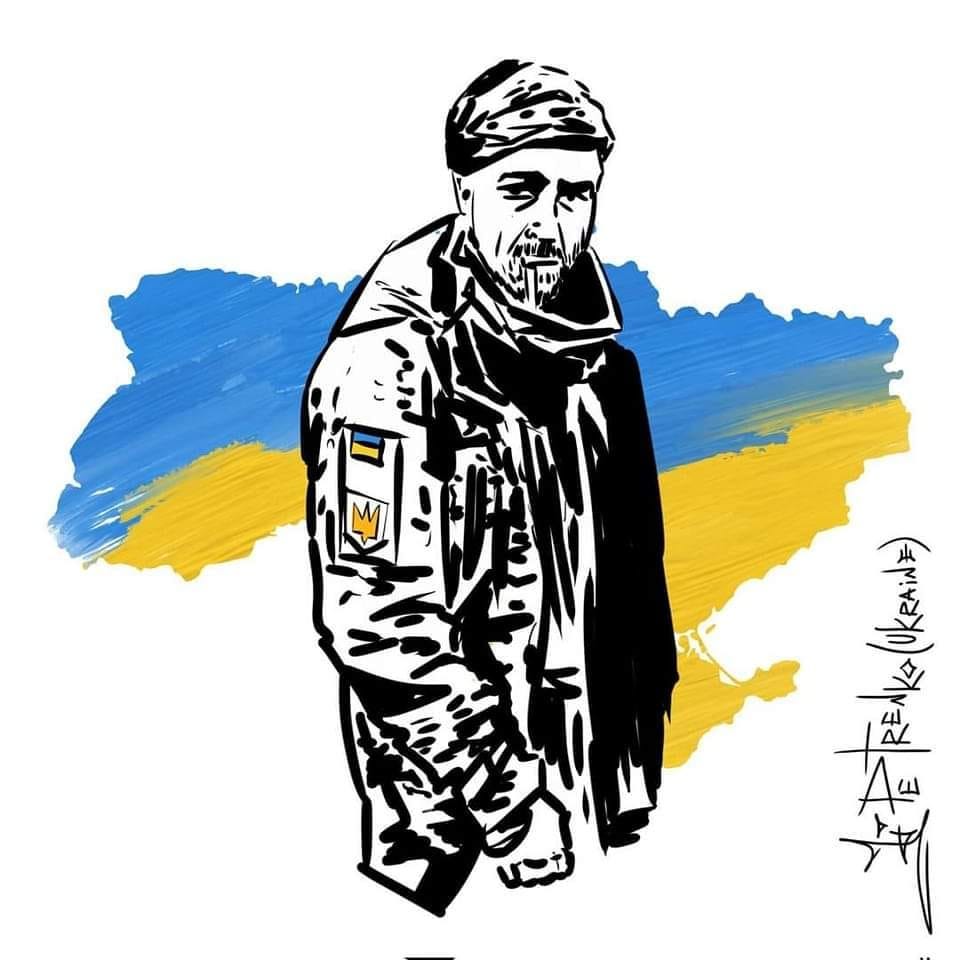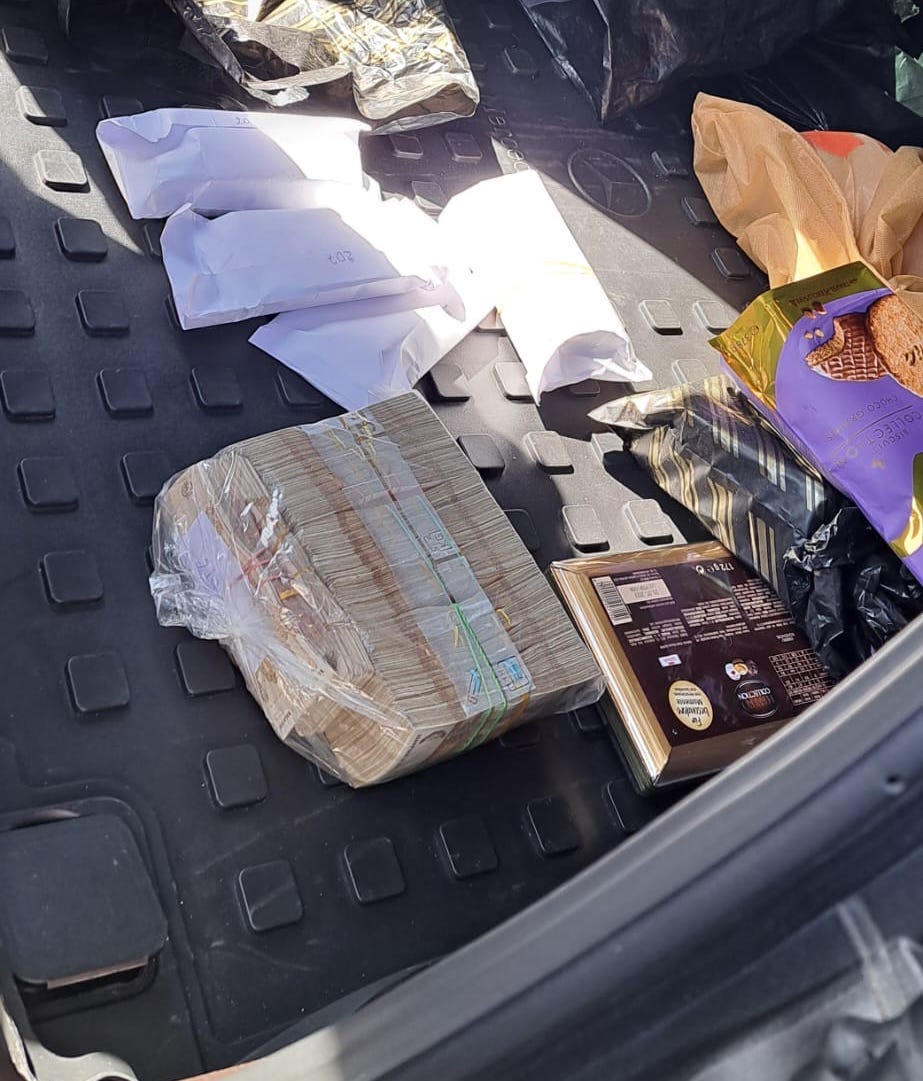Quick Note: Security and protest news dominated the headlines this week leaving us quite a lot of ground to cover. To prevent the newsletter from getting too long we’ve split the Weekly Roundup into 2 parts. Part 1 is focused on security concerns and the Shor protests. Part 2 will come out tomorrow and focus on political and economic news.
War in Ukraine
This week, Ukrainian officials confirmed that their soldier executed on film while in Russian captivity was Oleksandr Matsiyevsky. In the video, which has been widely shared on social media, Matsiyevsky is shown looking tired but unbroken, standing in a trench smoking a cigarette. His last words before being shot by multiple Russian soldiers was “Glory to Ukraine.”

Moldovan authorities confirmed that Matsiyevsky was a Moldovan citizen. He was born in Chisinau and moved to Kyiv more than 10 years ago where he worked as an electrician before joining the territorial defense forces at the outbreak of war. The Moldovan government commented on his death saying:
“The Foreign Ministry strongly condemns the murder of a Moldovan citizen, which can be regarded as a war crime and a gross violation of international humanitarian law. We reaffirm Moldova's firm position condemning Russia's brutal war against Ukraine. Our country continues to support Ukraine in its efforts to return the region to peace and stability,”
President Zelenskyy posthumously awarded Matsiyevsky the title “Hero of Ukraine.” Glory to Heroes.
Transnistria and Moldovan Security
Last week we wrote about the announcement by the Transnistrian “authorities” of a supposed terrorist plot by the Ukrainian secret services (SBU) to assassinate Transnistrian leaders and murder civilians. Further reporting by Newsmaker.md about the film released by the Transnistrian authorities describing the planned attack found many holes in the story. Most importantly, the “confessions” shown in the film never mention violent attacks in any way. This is explained via voiceovers. The men being interrogated do confess to setting up surveillance equipment but nothing else. Other discrepancies exist including the supposed “SBU” handlers in Odessa using Moldovan phone numbers.
While most evidence seems to indicate that this was not a real plot, or at least not anything like what the Transnistrians claim, the leadership in Transnistria is doubling down. They have now changed the story saying that assassinating their leadership was actually a secondary target. They allege that the primary target was an OSCE delegation that was in Bender on February 14th.
Moldova’s Deputy Prime Minister for Reintegration commented on this news saying:
“Such a change in purpose looks very strange. We can only speculate what is happening and why the focus has shifted to the OSCE. They may have been angered by the presence of the OSCE in more sensitive areas in recent years, during military exercises or throughout the security zone. We assume that they want to limit the presence of OSCE diplomats in the Transnistrian region. … After this announcement, there will be fewer diplomats willing to visit the region.
The Deputy Prime Minister again stressed that Moldova did not believe Ukraine had any part in this plot.
Objectively speaking, The notion that Ukraine would assassinate the leadership in Transnistria and kill civilians made no sense. The idea that they would instead target European and American diplomates makes even less sense.
As a result of their “evidence” of terrorist activities, the Transnistrian authorities have asked the Joint Control Commission (JCC) which overseas the border regions for enhanced security checks of all vehicles entering the region including by the Russian “peacekeepers.” The JCC has not approved this request.
While the purpose and origin of this “terrorism” story remain unclear, what is clear is that Transnistrians are on edge. More fake air raid alerts have filtered into their TV and radio stations as those Moscow and St. Petersburg stations are hacked. Social media scares about draft notices being sent to young men are causing the local “authorities” to decry disinformation and try and keep people calm. In Moldova, most people seem to be tracking this story but aren’t too concerned. In Transnistria residents are getting one scary story after another.
EU Provides Military Aid
The European Union announced this week that they would provide 40 million euros in Military aid to Moldova. The majority of the money will go towards buying a ground based, mobile early warning radar so that the Moldovan military can better track air defense threats (not that they can do anything about them). Other spending will include on vehicles, communications equipment and cyber security.
Meanwhile, the Moldovan Army announced another round of live fire military exercises in the Balti and central training grounds. These announcements are meant to calm people who might be worried seeing military equipment moving around the roads. Since they were not announced before the war, it is unclear if there is a higher pace of training, but it now appears that the Army is holding very frequent exercises in various parts of the country.
Shor Party and Internal Security
This week, investigative journalists from RISE Moldova, working with a consortium of international investigative outlets, revealed a leaked 2021 Kremlin plan to bring Moldova under Russia’s “umbrella” by 2030. The document was prepared by the FSB and outlined goals such as “countering Romanian influence,” and “ending Moldovan collaboration with NATO.” The plan envisioned creating a network of pro-Russian NGOs in Moldova by 2025 which the Kremlin would fund as well as traditional tools such as “using energy supplies as leverage.”
The story made international headlines with CNN running both a cable segment and writing an article on it. Both are quite good at outlining the substance of the document as well as some of the history of Russia’s engagement.
In Moldova however this information was largely treated with a shrug. Journalists outlined how most of the actions planned in this report were quickly adopted by the Socialist Party and their leaders, either as political positions or in the case of Igor Dodon the founding of an NGO to “strengthen Moldovan - Russian business ties.” The reason most people don’t find this news, is that even casual observers of politics have long known, or suspected, that the Socialist Party coordinates its actions closely with the Kremlin. The problem is that while opponents of the Socialists know this and decry it, supporters of the Socialists know this and support it. Internationally the news is helping shed light on Russia’s ongoing efforts to subvert Moldovan politics. Internally, this is all old news. More so because almost every element of this 2021 strategy has failed or become irrelevant after the events of the past year. This has led the Kremlin to adopt a new strategy with the ongoing Shor protest movement.
Shor Protests Continue
This week the Shor Party under the name “Movement for the People” organized 2 protests against the government, one on Sunday March 12th and one of Thursday March 16th. There was a flurry of law enforcement activity around these protests as the police allege that Russian security services planned riots and violent actions. Here is a roundup of the various reports and statements:
Russian Infiltrators - Before the March 12th protest, the head of the national police announced that undercover police officers discovered 2 Russian agents planning riots. The first was filmed training rioters and organizing them in 10 groups of 10 people to conduct violent actions. Each agitator was promised $10,000 to provoke violent riots. The second agent was stopped at the border as he tried to cross into Moldova. The agent had previously entered Moldova on another occasion but under a different identity. In addition to the Russian agent, 7 people were detained before the protest even started and police announced that they neutralized this threat.
Border Police detained and deported a member of the Wagner mercenary group who attempted to enter the country right before the planned riots. Police noted that in the last week alone 182 foreigners and 46 vehicles were turned back at the border and prevented from entering the country.
Shor Allies Boycot Protests - Following the announcements from police, Gheorghe Cavcaliuc, fugitive leader of the PACE party, called on his party members not to attend the planned protests and to stay home. “Scutul Poporului“ Association of law enforcement veterans which had taken part in past protests also called on their members to stay home.
Anti-Corruption Prosecutors track and seize Shor money - SIS agents and prosecutors conducted raids before the protest on the cars of various regional members of the Shor party identified as “couriers” carrying money to finance the protests. They seized 2.5 million lei and 50,000 euros as well as lists of people who were to be paid.

March 12 Protest - Police claim around 2100 people attended the protest, though more attempted to come to Chisinau from northern regions but were stopped by the road police who cited illegal use of non-bus busses to transport people (it’s a Moldova paperwork thing that the police are aggressively leveraging). During the protest there were multiple clashes with police as protestors attempted to march to the government building but were prevented. 77 people (including 24 minors) were given citations including some who were found with knives or other prohibited items. There were also 4 bomb threats called against various buildings (including the airport) during the events. The police claim these threats were designed to spread them out.
Aftermath - Following the March 12 protest, an unnamed vice chairmen of the Shor party was charged with illegal party financing. Additionally, the Commission for Exception Situations (CSE) announced new rules around protests. The use of logos or corporate or legal entities are banned from protests (the reason is unclear). Bulletproof vests, tactical vests, body cameras and portable radios are prohibited. Further, no store in Moldova is permitted to make or sell uniforms that resemble those of police, security services or military personnel.
March 16th Protest - The Shor party again took to the streets in protest and once again the police prevented many busses from getting to the capital. 24 protestors were detained including 15 minors for various offenses.
At the end of the day the 2 protests of the past week were relatively small if unruly. Most people only took note of them because they seriously disrupted traffic in the city. But as the flurry of reports and briefings from police officials and prosecutors underlines, there is an increasingly dangerous edge to these events. Police have been very successful at infiltrating riot groups and detaining leaders the day before the planned violent actions. Prosecutors continue to have success “following the money” and disabling the illicit financial networks that underpin these “protests.” At the same time, the appearance of Russian agents and Wagner mercenaries highlights the fact that the Kremlin and their Shor allies are also throwing more and more resources into attempts at destabilization. All in all this was a good week for the police and security services who seem up to the task of combating these subversive activities. But the mechanisms in play keep evolving and it seems that we are no where near the end of these “protests.”




Another excellent newsletter. I wonder, following the expulsion of many Russian security agents working under diplomatic cover in many other European nations, I wonder if the Kremlin is now doubling down on Moldova as one of the few countries it still has some internal leverage, as you report? And spare agents with not enough to do! Just some speculation from me, I can't claim to have researched this!